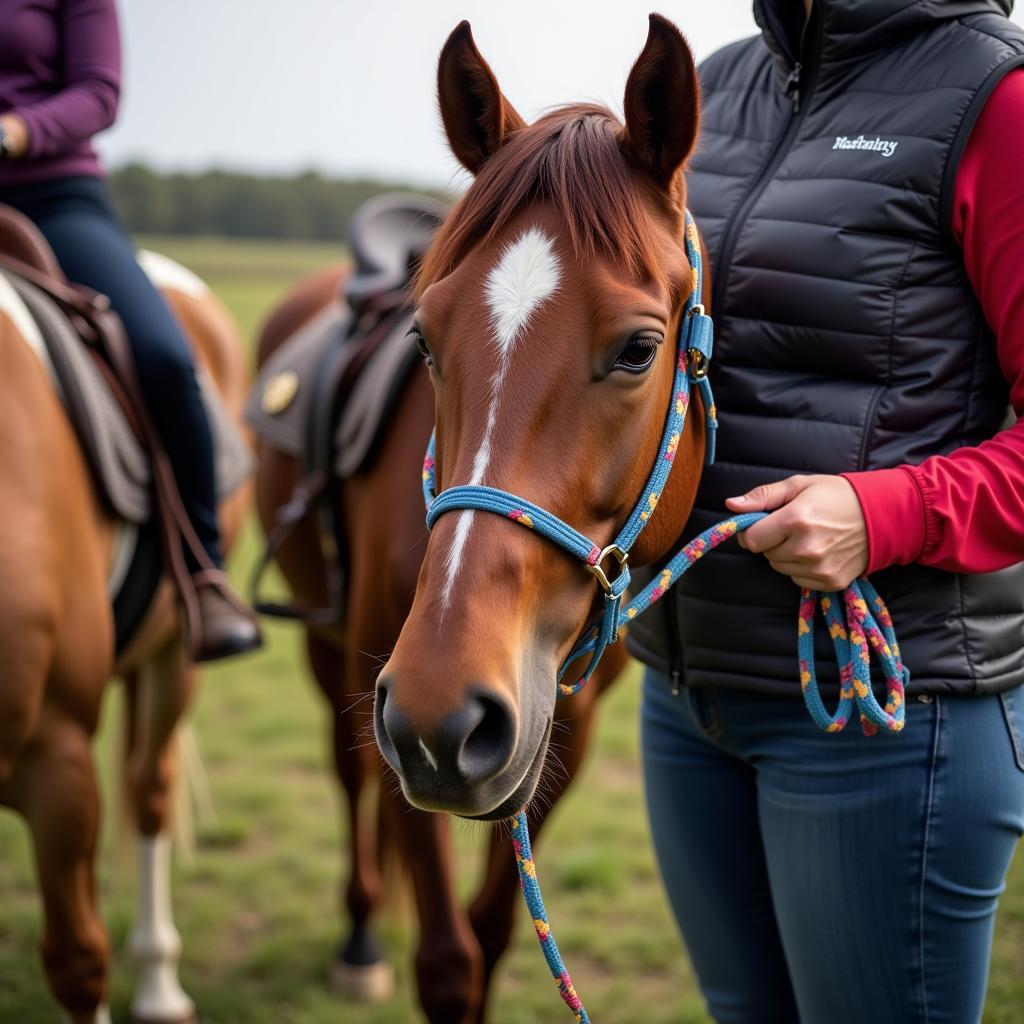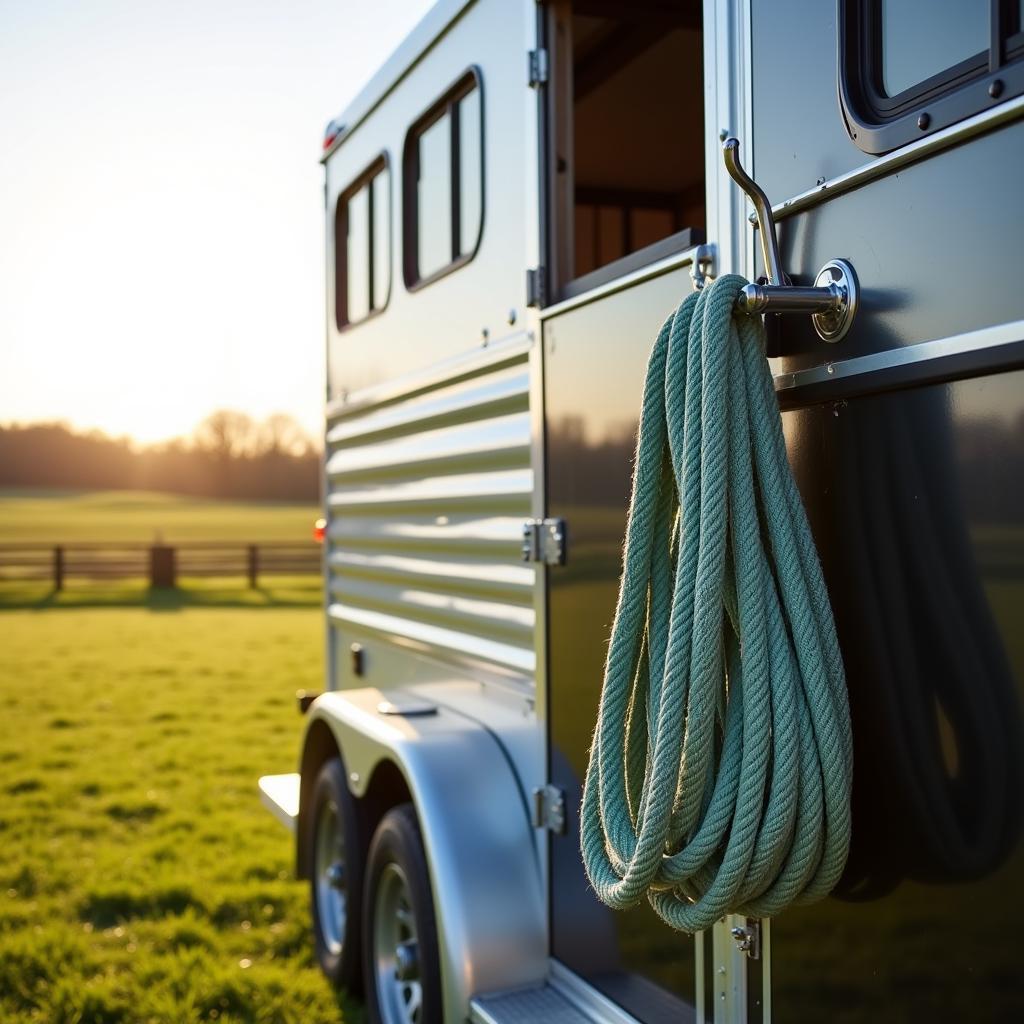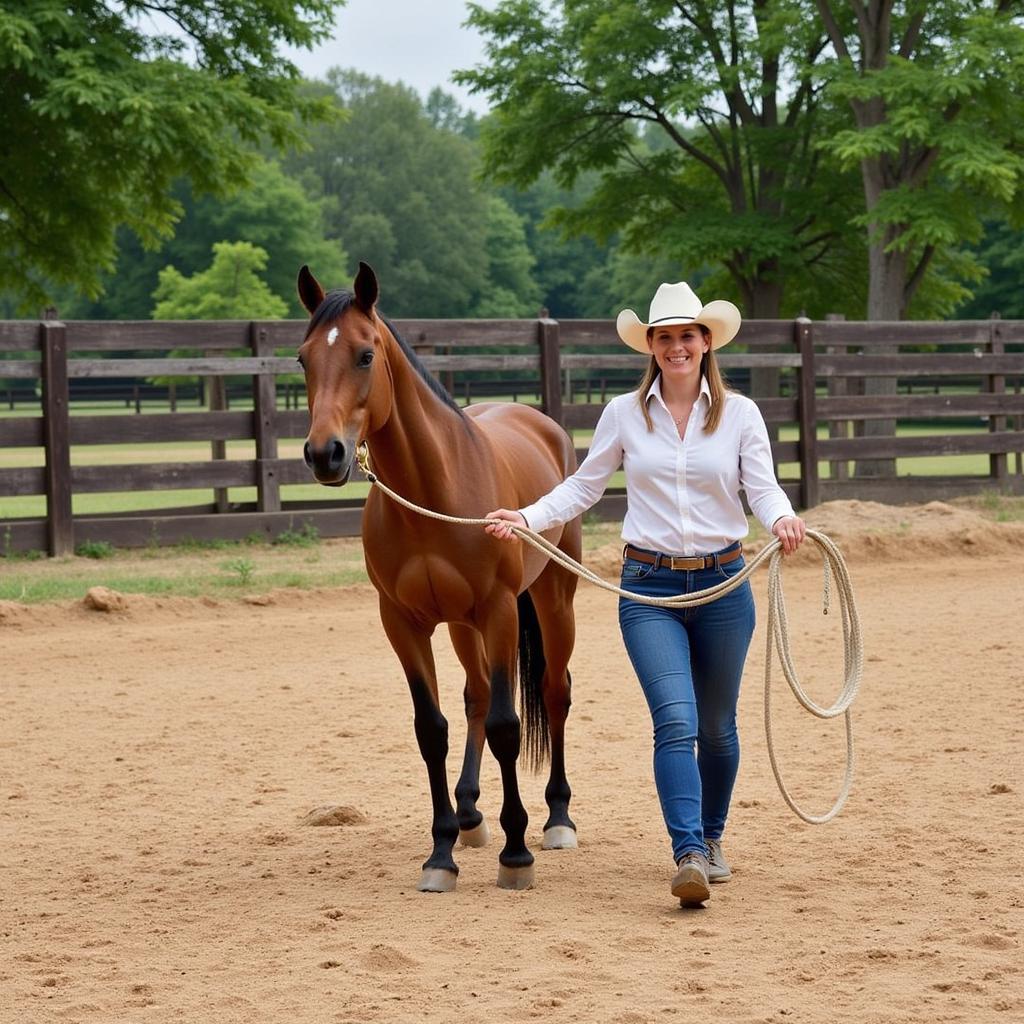Ropes are indispensable tools for horse owners, serving a myriad of purposes in the daily care and training of these majestic animals. From leading and tying to training and exercising, the right rope can make all the difference in ensuring the safety and well-being of both horse and handler.
 Horse Lead Rope
Horse Lead Rope
Choosing the Right Rope: A Matter of Material
Selecting the appropriate rope for your equine companion goes beyond simply grabbing the first one you see. The material, length, diameter, and even color can significantly impact its functionality and suitability for different tasks. Let’s delve into the world of horse ropes and explore the key factors to consider when making your choice:
Cotton Ropes: The Gentle Touch for Sensitive Skin
Cotton ropes, known for their softness and breathability, are often preferred for horses with sensitive skin. Their natural fibers are less likely to cause irritation or chafing, making them suitable for leading, tying, and even groundwork exercises.
Nylon Ropes: The Durable Workhorse of the Stable
If you’re seeking strength and durability, nylon ropes are the way to go. These synthetic ropes are resistant to wear and tear, making them ideal for heavy-duty tasks such as tying in the stable or trailering.
 Horse Trailer and Rope
Horse Trailer and Rope
Blend Ropes: The Best of Both Worlds
For those seeking a balance between softness and strength, blended ropes offer an excellent solution. Combining the comfort of cotton with the durability of nylon, these ropes are versatile and suitable for various applications.
Understanding Rope Diameter and Length
The diameter and length of a horse rope also play crucial roles in its functionality and safety:
- Diameter: Thicker ropes generally offer greater strength but can be bulkier to handle. Thinner ropes, while lighter, may not be as durable.
- Length: Lead ropes typically range from 8 to 12 feet, providing ample control while leading. Longer ropes are available for groundwork exercises or tying at a distance.
Safety First: Essential Tips for Using Ropes with Horses
Working with horses always requires a safety-conscious approach, and using ropes is no exception. Here are some essential tips to keep in mind:
- Never wrap a rope around your hand: A sudden pull from the horse could result in serious injury.
- Use quick-release knots: In case of emergency, you need to be able to untie your horse quickly and safely.
- Inspect ropes regularly: Check for signs of wear and tear, such as fraying or cuts, and replace damaged ropes immediately.
Beyond the Basics: Exploring Specialized Horse Ropes
Beyond the standard lead and tie ropes, a variety of specialized ropes cater to specific equine disciplines and training methods:
- Neck ropes for horses: These ropes, designed for groundwork and training, offer control and communication without the need for a bit. You can learn more about neck ropes for horses on our website.
- Rope reins for horses: Used in various riding styles, rope reins for horses provide direct contact and clear communication between horse and rider.
- Lunge lines: These long ropes, typically 25-30 feet, allow for controlled exercise and training without riding the horse.
 Horse Training with Rope
Horse Training with Rope
“Choosing the right rope for your horse is crucial for its well-being and your safety,” says renowned horse trainer, Sarah Williams. “Always prioritize quality, durability, and suitability for the intended purpose.”
Rope for Horses: Your Questions Answered
Q: What type of rope is best for tying a horse?
A: A strong, durable rope made of nylon or a nylon blend is generally recommended for tying horses. Ensure the rope is in good condition and tied securely using a quick-release knot.
Q: Can I use a lead rope for lunging?
A: While a lead rope might suffice for short periods, it’s best to use a designated lunge line for extended lunging sessions. Lunge lines are longer, providing ample space and control for the horse to move freely.
Q: How often should I replace my horse’s ropes?
A: Regularly inspect your horse’s ropes for any signs of damage, such as fraying or cuts. Replace any worn or damaged ropes immediately to prevent accidents.
Need help finding the right rope for your horse?
Contact us at Phone Number: 0772127271, Email: [email protected] or visit us at QGM2+WX2, Vị Trung, Vị Thuỷ, Hậu Giang, Việt Nam. Our team of experts is available 24/7 to assist you. You can also browse our selection of horse trailers, including 3 horse trailers for sale and horse trailers for sale in New Mexico.